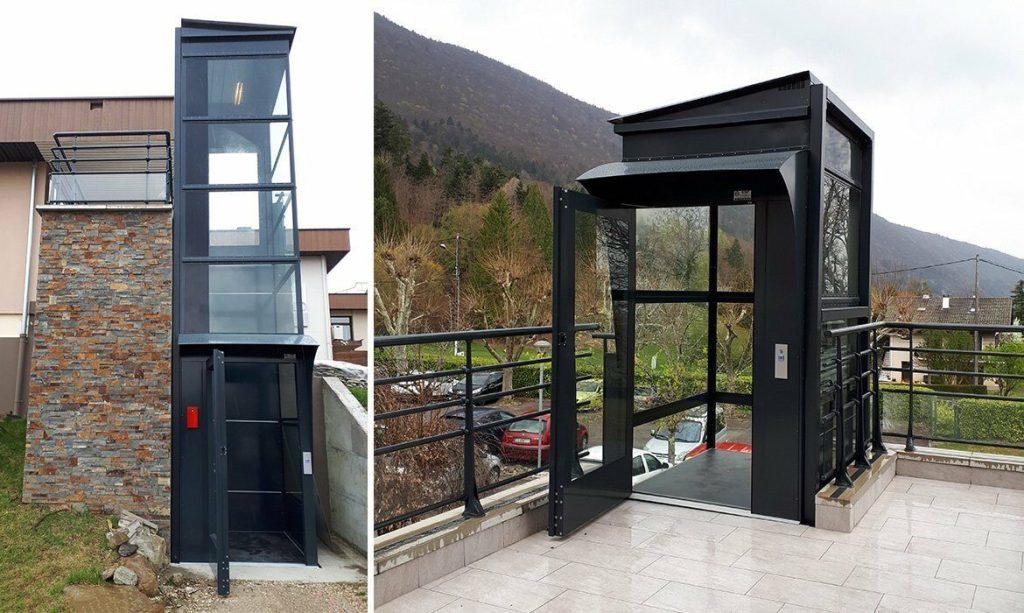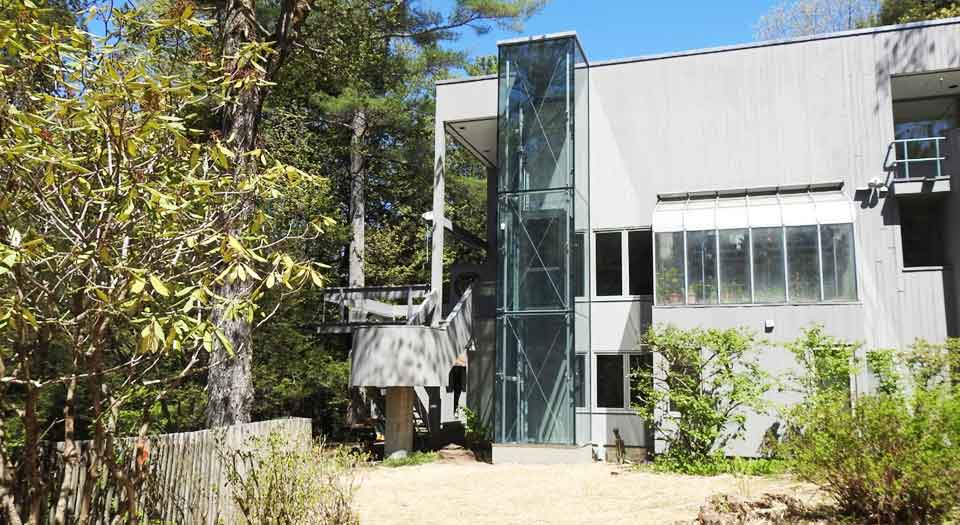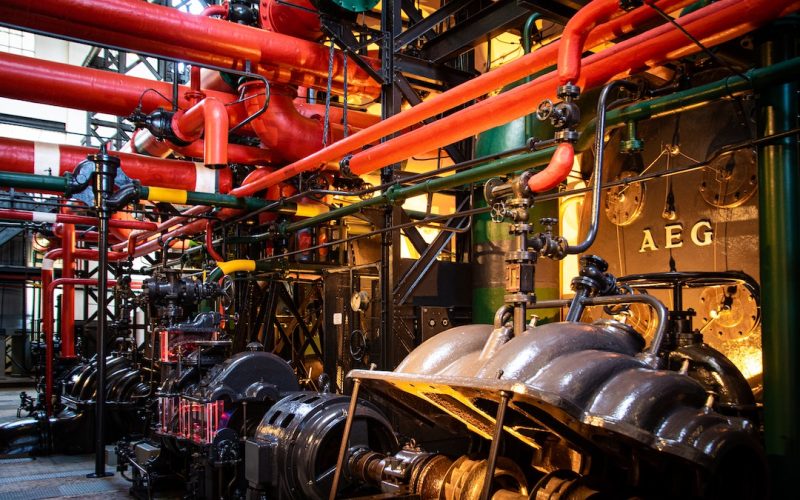Outdoor residential elevators are a unique and innovative solution for homeowners looking to add accessibility and convenience. These elevators are designed to be installed outside the home, eliminating the need for an indoor elevator shaft and freeing up valuable indoor space. This article will explore the benefits and considerations of installing an outdoor residential elevator in homes with limited indoor space.
Benefits of Outdoor Residential Elevators
Increased Accessibility
One of the primary benefits of installing an outdoor residential elevator is increased accessibility for individuals with mobility issues. Whether it’s an ageing parent or a family member with a disability, an outdoor elevator can provide easy access to all levels of the home, making it possible for them to age in place and maintain their independence. This can also benefit individuals recovering from an injury or surgery, eliminating the need to navigate stairs during recovery. Additionally, outdoor elevators can also be helpful for individuals who are temporarily injured or recovering from surgery, as they eliminate the need to navigate stairs during the recovery process.

Additional indoor space
Another benefit of outdoor residential elevators is the additional indoor space freed up by eliminating the need for an indoor elevator shaft. This can be especially beneficial in homes with limited indoor space, such as older homes or homes with multiple levels. By eliminating the need for an indoor elevator shaft, homeowners can open up valuable indoor space for other uses, such as a home office or additional living space. This can be especially beneficial for homeowners looking to remodel or expand their homes. It allows them to utilize the space that an indoor elevator shaft would have taken up for other purposes.
Aesthetically pleasing design options
Outdoor residential elevators come in various design options, allowing homeowners to choose a style that fits their home’s overall aesthetic. There is an outdoor elevator for every homeowner’s needs and tastes, whether they want a sleek, modern look or a more traditional one. This allows homeowners to personalize their outdoor elevators to match the style of their homes and make them blend in seamlessly with their surroundings. Furthermore, outdoor elevators can also be customized with different finishes, materials, and colours to match the style of the home. This can include wood panelling, glass walls, and even adding a roof to the outdoor elevator to match the style of the house.
Video: Outdoor Residential Lift
Convenience
Outdoor elevators provide an extra level of convenience for homeowners, eliminating the need to navigate stairs. This can be beneficial for older homeowners or those with mobility issues, as it reduces the risk of falls and provides easy access to all levels of the home. Additionally, outdoor elevators allow easy access to outdoor spaces such as rooftop terraces, swimming pools, and gardens. This can be beneficial for homeowners who enjoy entertaining or spending time outdoors.
Improved Safety
By eliminating the need to navigate stairs, outdoor residential elevators can also improve the overall safety of a home. Falls are one of the most common ways for older people to get hurt. An outdoor elevator can greatly reduce the risk of falls and give homeowners and their loved ones peace of mind. Furthermore, outdoor elevators can also be equipped with safety features such as emergency brakes, automatic stop buttons, intercoms, and even cameras to ensure the safety and security of all passengers. Additionally, outdoor elevators can also be equipped with automated levelling systems, which help prevent accidents caused by rough landings.
Ability to age in place
Outdoor residential elevators provide the ability to age in place, which means homeowners can continue to live in the same home they’ve always known, even if they need extra assistance to move around. With an outdoor elevator, homeowners can easily access every level of their home and enjoy the same independence they’ve always had. This can also benefit homeowners who plan to live in their homes for many years, as it ensures they can continue to live in the house even as their mobility needs change.
Allows for multi-level living or access to outdoor spaces
Outdoor residential elevators allow multi-level living or access to outdoor spaces such as a rooftop terrace or pool. This can be especially helpful for people who want to enjoy the natural beauty of their surroundings or make more living space on the upper floors of their homes. Outdoor elevators can also be used to get to outdoor spaces like swimming pools, gardens, and rooftop terraces, so people can enjoy the beauty of their surroundings to the fullest.
Considerations When Installing an Outdoor Residential Elevator
Local Building Codes and Regulations
Before installing an outdoor residential elevator, you should check your area’s building codes and rules to ensure it’s allowed. Every state, city, and town has their building codes, and it’s essential to ensure that the elevator you choose meets those codes. This includes ensuring that the elevator meets the required safety standards and is installed in compliance with local zoning laws and building codes. It is also essential to check with the local building department to obtain the necessary permits and approvals before installing an outdoor elevator.
Weather Resistance and Maintenance Requirements
Outdoor elevators are exposed to the elements and, therefore, subject to weathering. It’s essential to choose an elevator that is weather-resistant and requires minimal maintenance. This may include features such as rust-resistant materials or a weather-resistant finish. Choosing an elevator that can handle the weather in your area, such as high winds, heavy rain, or extreme temperatures, is also important. Furthermore, it is also necessary to choose an accessible elevator to maintain, as regular maintenance is crucial to ensuring the safety and longevity of the elevator.
Options for Cost and Financing
The price of an outdoor residential elevator can change based on the type of elevator, the size and design of the unit, and the features and options that come with it. Homeowners must research options and costs to find a unit that fits their budget. Financing options, such as home equity loans or personal loans, may also be available to help cover the cost of the elevator. It is also essential to factor in the long-term costs of the elevator, such as the cost of regular maintenance and repairs.
Potential Impact on Property Insurance
Installing an outdoor residential elevator may also have an impact on property insurance. It’s important to talk to your insurance company to find out if your coverage or premium costs might change. It is also important to check with the insurance company to ensure that the elevator is covered in an accident or natural disaster.
Types of Outdoor Residential Elevators
Traditional hydraulic elevators
Traditional hydraulic elevators are powered by a hydraulic cylinder located below the elevator. They are typically the most affordable option but may require more maintenance and are not as energy-efficient as other types of elevators. They work by using a piston to lift the elevator car, which is powered by a fluid such as oil or water. They are relatively simple in design and are known for their reliability and durability. However, they can be noisy and require more maintenance than other elevators.
Traction Elevators
Traction elevators are powered by an electric motor and are typically more energy-efficient than hydraulic elevators. They can also travel to greater heights and have a smoother ride than hydraulic elevators. They work by using a system of ropes or chains to lift the elevator car, which is powered by an electric motor. They are known for their smooth and quiet operation and are commonly found in commercial buildings. However, they may be more expensive than hydraulic elevators and require more maintenance.
Pneumatic vacuum elevators
Pneumatic vacuum elevators use a combination of air pressure and vacuum suction to lift and lower the elevator. They are usually smaller and less bulky than regular elevators, so they can be put in places with limited space. They use an air pressure system to lift the elevator car, which is powered by an electric motor. They are known for being small and having a low environmental impact because they don’t need a machine room or pit. However, they may be more expensive than traditional elevators and require more maintenance.
Conclusion
Outdoor residential elevators are an innovative and practical solution for homeowners looking to add accessibility and convenience. They offer a variety of benefits, including increased accessibility, additional indoor space, aesthetically pleasing design options, convenience, improved safety, the ability to age in place, and access to outdoor spaces. When installing an outdoor residential elevator, it is important to consider local building codes and regulations, weather resistance and maintenance needs, cost, and how it might affect property insurance. With so many types available, homeowners can choose the one that suits their needs and budget.
It’s important for homeowners to consider all of these factors before installing an outdoor residential elevator and to consult with a professional to determine the best option for their home. An outdoor residential elevator can be a valuable addition to any home, providing increased accessibility, convenience, and improved safety while freeing up valuable indoor space. An outdoor residential elevator can be a great investment for any homeowner if planned and thought out well.












